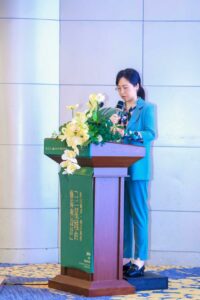 Peina Zhuang
Peina Zhuang
(Sichuan University, China)
11 September 2024 (Wednesday) at 11:00 CET
Institute of World Literature SAS
As two of the most romantic figures in the history of Eastern and Western philosophy, the philosophical ideals of Zhuangzi and Plato exhibit remarkable similarities. They coexisted during pivotal eras, enduring turmoil and transformation and witnessing the prosperity and collisions of civilizations. Both staunch idealists, they established romantic sanctuaries of the spirit for posterity, crafting poetic philosophical concepts. In their views on the body, they similarly regard it as a synthesis of physiology and spirit. Furthermore, they both express a profound affinity for the spirituality of the body, even dedicating their lives to the pursuit of spiritual freedom and beauty. However, upon closer examination, it becomes evident that Zhuangzi and Plato hold fundamentally different perspectives on the body. While both emphasize the composite nature of the body and pursue an aesthetic of spiritual transcendence beyond physiology, their concepts diverge significantly in their definitions of spirit (soul) and form (body), as well as in their understanding of the destination of spirit (soul) and form (body). This lecture will conduct a meticulous analysis of primary classical texts, combined with relevant literature from both Eastern and Western sources, to compare and contrast Zhuangzi and Platoʼs perspectives on body culture and the practical implications arising thereof.
Peina Zhuang is associate professor and Ph.D supervisor of comparative literature at Sichuan University. Her research interests include comparative literature, intercultural studies, and translation studies.